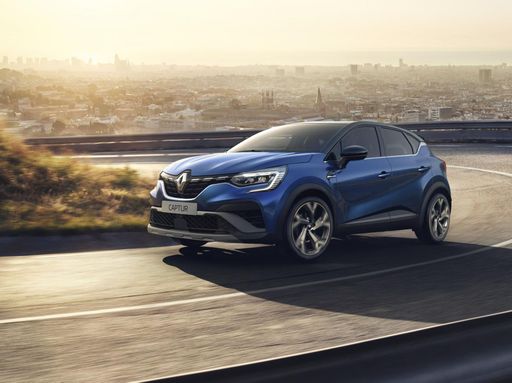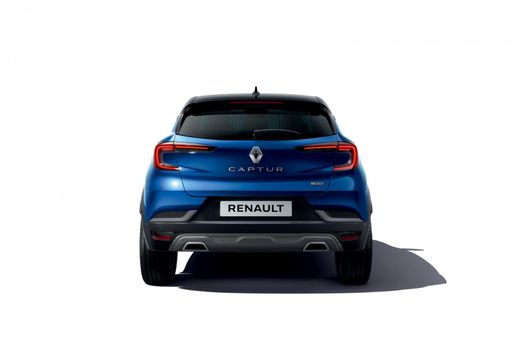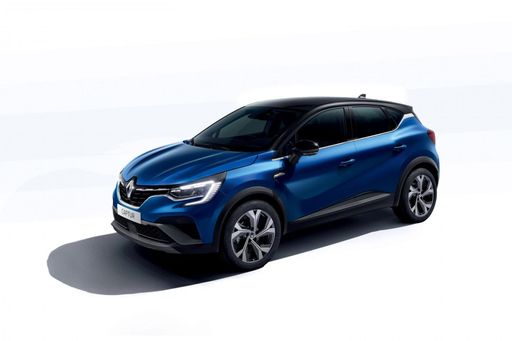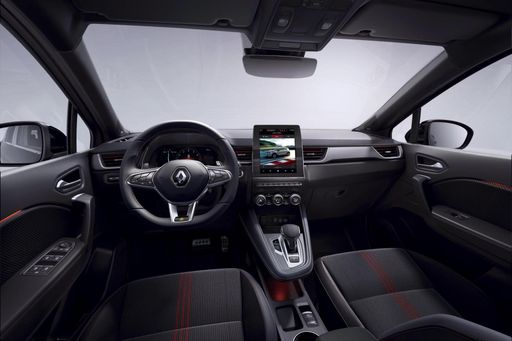Hyundai i20 vs Renault Captur - Differences and prices compared
Compare performance (90 HP vs 158 HP), boot space and price (18600 £ vs 21100 £ ) at a glance. Find out which car is the better choice for you – Hyundai i20 or Renault Captur?
Costs and Efficiency:
Price and efficiency are often the first things buyers look at. Here it becomes clear which model has the long-term edge – whether at the pump, the plug, or in purchase price.
Hyundai i20 has a slightly advantage in terms of price – it starts at 18600 £ , while the Renault Captur costs 21100 £ . That’s a price difference of around 2528 £.
Fuel consumption also shows a difference: Renault Captur manages with 4.40 L and is therefore distinct more efficient than the Hyundai i20 with 5.70 L. The difference is about 1.30 L per 100 km.
Engine and Performance:
Power, torque and acceleration say a lot about how a car feels on the road. This is where you see which model delivers more driving dynamics.
When it comes to engine power, the Renault Captur has a decisively edge – offering 158 HP compared to 90 HP. That’s roughly 68 HP more horsepower.
In acceleration from 0 to 100 km/h, the Renault Captur is clearly perceptible quicker – completing the sprint in 8.90 s, while the Hyundai i20 takes 11.50 s. That’s about 2.60 s faster.
There’s also a difference in torque: Renault Captur pulls evident stronger with 265 Nm compared to 172 Nm. That’s about 93 Nm difference.
Space and Everyday Use:
Beyond pure performance, interior space and usability matter most in daily life. This is where you see which car is more practical and versatile.
Both vehicles offer seating for 5 people.
In curb weight, Hyundai i20 is somewhat lighter – 1145 kg compared to 1323 kg. The difference is around 178 kg.
In terms of boot space, the Renault Captur offers somewhat more room – 422 L compared to 352 L. That’s a difference of about 70 L.
When it comes to payload, Hyundai i20 minimal takes the win – 465 kg compared to 453 kg. That’s a difference of about 12 kg.
Who wins the race in the data check?
The Renault Captur holds a decisive overall lead in the objective data comparison.
This result only shows which model scores more points on paper – not which of the two cars feels right for you.
Costs and Consumption
View detailed analysis
Engine and Performance
View detailed analysis
Dimensions and Body
View detailed analysis

Renault Captur
Hyundai i20
The Hyundai i20 is a cheeky small car that mixes smart styling with sensible practicality, feeling more polished and roomy than you might expect for the money. It’s an easy car to live with, offering engaging handling, a comfy cabin and useful equipment that make daily commutes and weekend errands notably less dull.
details




Renault Captur
The Renault Captur is a cheeky little crossover that pairs city-friendly agility with a roomy, well-thought-out cabin and enough style to turn heads at the lights. It’s a sensible choice for buyers who want practical versatility and a dash of personality on their daily drives, without taking itself too seriously.
details



Costs and Consumption |
|
|---|---|
|
Price
18600 - 24000 £
|
Price
21100 - 28400 £
|
|
Consumption L/100km
5.70 L
|
Consumption L/100km
4.4 - 6 L
|
|
Consumption kWh/100km
-
|
Consumption kWh/100km
-
|
|
Electric Range
-
|
Electric Range
-
|
|
Battery Capacity
-
|
Battery Capacity
-
|
|
co2
128 - 129 g/km
|
co2
100 - 137 g/km
|
|
Fuel tank capacity
-
|
Fuel tank capacity
48 L
|
Dimensions and Body |
|
|---|---|
|
Body Type
Hatchback
|
Body Type
SUV
|
|
Seats
5
|
Seats
5
|
|
Doors
-
|
Doors
5
|
|
Curb weight
1145 - 1170 kg
|
Curb weight
1323 - 1441 kg
|
|
Trunk capacity
352 L
|
Trunk capacity
326 - 422 L
|
|
Length
-
|
Length
4239 mm
|
|
Width
1775 mm
|
Width
1797 mm
|
|
Height
-
|
Height
1575 mm
|
|
Max trunk capacity
-
|
Max trunk capacity
1363 L
|
|
Payload
455 - 465 kg
|
Payload
447 - 453 kg
|
Engine and Performance |
|
|---|---|
|
Engine Type
Petrol
|
Engine Type
Full Hybrid, Petrol, Petrol MHEV
|
|
Transmission
Manuel, Automatic
|
Transmission
Automatic, Manuel
|
|
Transmission Detail
Manual Gearbox, Dual-Clutch Automatic
|
Transmission Detail
Automatic Gearbox, Manual Gearbox, Dual-Clutch Automatic
|
|
Drive Type
Front-Wheel Drive
|
Drive Type
Front-Wheel Drive
|
|
Power HP
90 HP
|
Power HP
115 - 158 HP
|
|
Acceleration 0-100km/h
11.5 - 12.8 s
|
Acceleration 0-100km/h
8.9 - 12.3 s
|
|
Max Speed
-
|
Max Speed
180 km/h
|
|
Torque
172 Nm
|
Torque
160 - 265 Nm
|
|
Number of Cylinders
3
|
Number of Cylinders
3 - 4
|
|
Power kW
66 kW
|
Power kW
84 - 116 kW
|
|
Engine capacity
998 cm3
|
Engine capacity
1199 - 1789 cm3
|
General |
|
|---|---|
|
Model Year
2025
|
Model Year
2025
|
|
CO2 Efficiency Class
D
|
CO2 Efficiency Class
C, D, E
|
|
Brand
Hyundai
|
Brand
Renault
|
What drivetrain options does the Hyundai i20 have?
The Hyundai i20 is offered with Front-Wheel Drive.




